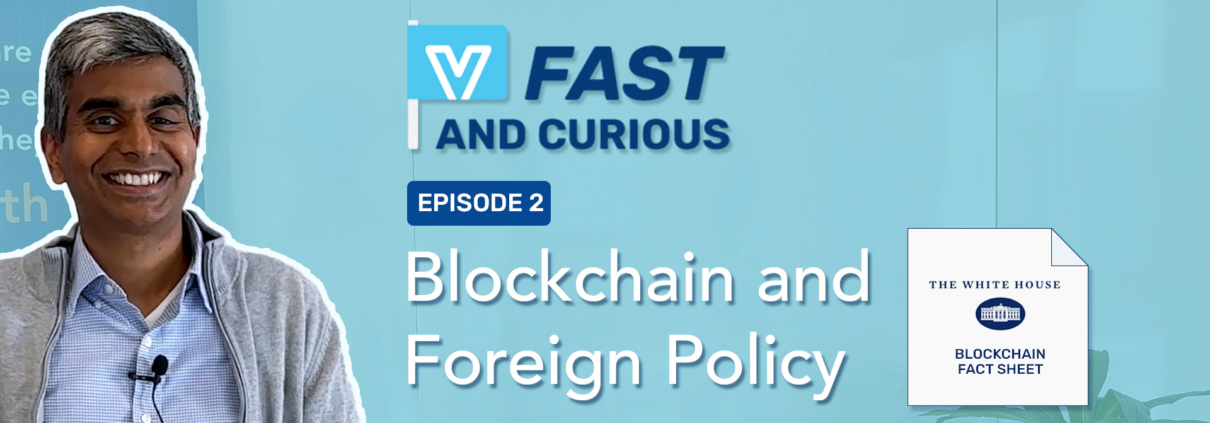2 Fast 2 Curious: Blockchain and foreign policy
The second installment of our summer learning series continues the discussion on blockchain, but this time from a foreign policy perspective. Follow VIA to learn about blockchain, zero-knowledge proofs, and all things Web3 in the Fast and Curious series.
Below is a transcript of the video:
As a country, we want to make sure that we’re safe. National security is of interest to all of us, and we need to make sure that there are ways to limit the power or keep checks and balances to unfriendly countries.
And as an example, things like cryptocurrencies or digital currencies can be used for nefarious reasons. They can be used in black markets. They can also be used by countries that have sanctions against them like Russia for invading Ukraine. It’s a way for people to get around embargoes or sanctions.
In September of last year, the United States White House put out a publication. It’s a longer document, and it’s the first-ever framework for digital assets. And the thing you’ll note is despite all of what’s happening today around regulation and legislation (really that’s just trying to clean up fakes in the industry) that there’s a clear commitment to U.S. leadership in the global financial system and economic competitiveness.
And I think that’s sort of reinforcing the points we just talked about in our previous video. There’s also the importance of kickstarting the private sector. It’s jobs for everyone, making sure there are high-paying jobs. A little bit further down there is a recognition of the potential benefits and risks of a U.S. central bank digital currency and how important that is to the United States around maintaining the U.S. dollar leadership.
In a lot of ways globally, the U.S. dollar provides stability. The framework also aims to ensure that white-collar crime and fraud don’t become the domains of digital currencies overall.
So lots of reasons why Web3 and blockchain play a huge role around this area of domestic policy and foreign policy.
Number one, jobs. Very high-paying, high-quality jobs to create a robust domestic economy.
Number two, foreign competition. Making sure that sanctions and embargoes are maintained despite the proliferation of digital currencies.
And number three, the U.S. dollar. Making sure that the U.S. dollar, which has a huge role to play in the global economy, not just at home, and any kind of central bank digital currency can play an equally important role. Or, as digital currencies gain favor in the world, that the U.S. role is not diminished as a result of a rise in blockchain, Bitcoin and other digital currencies.
So there we have some of the key reasons domestic and foreign policy is having an impact on blockchain, and also how Web3 and blockchain is impacting domestic and foreign policy. We’re excited to see the commitment by the U.S. government in this area.
Thanks for watching. Stay tuned for next episode.







